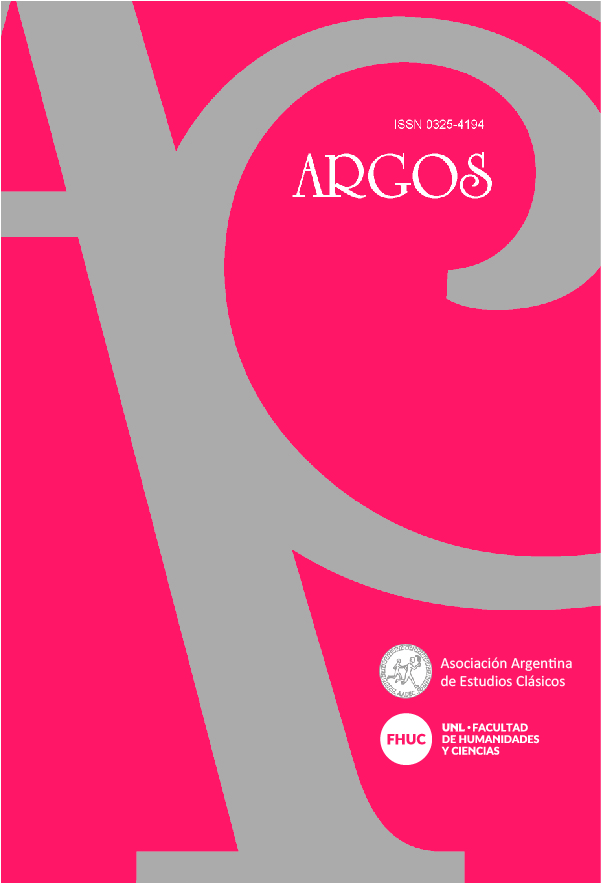Plato, trapped by the weight of the absolute negation of Parmenides
DOI:
https://doi.org/10.14409/argos.2019.44.e0019Keywords:
Plato, Parmenides, Not-being, Contrarity, OthernessAbstract
Parmenides had written that “there is [to be] and it is not possible not to be” (fr. 2. 3) and, consequently, that “it is necessary to exist absolutely, or not” (Fr. 8. 11). The absolute nature of this thesis excludes any possibility for being of something that is not, because since “this will never be imposed: that there are things that are not” (fr. 7. 1). But “dialogue”, the foundation of philosophy, implies opposing opinions, even contradictory, and, according to Parmenides’ interpretation in Plato’s time (interpretation that he shares), every denial implies contradiction, and if a discourse that expose things as they are, a contradictory discourse would say “what is not”. The main objective of the Sophist is precisely to justify the possibility of false discourse, even if it says “what is not”. And to do so Plato must relativize the notion of Parmenides’ absolute not-being and transform it into “not to be the same as... X”, that is, “to be different from...”: a false speech says something “different” from what it is. But this not-being as different has only predicative validity. Ontologically, the absolute not-being does not exist, and Plato implicitly admits that Parmenides was not wrong.



